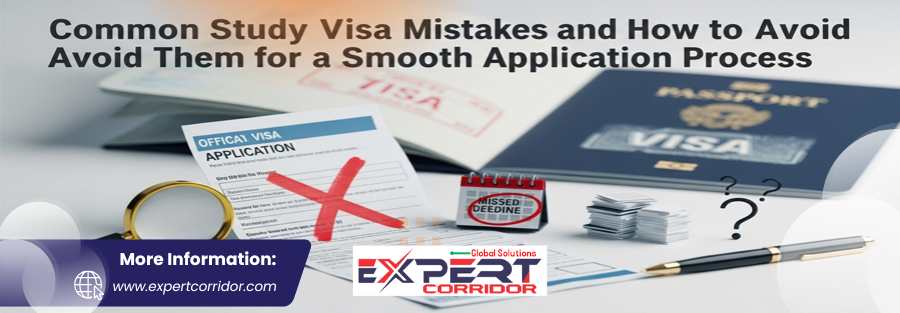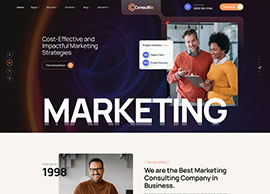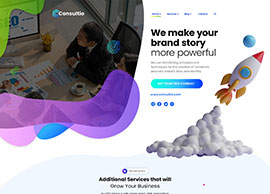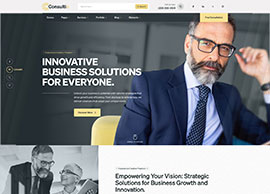Avoid delays and rejections by knowing the most common study visa mistakes students make. Learn how to prevent them for a stress-free and successful application process. Expert tips from Expert Corridor!
1. Introduction
Thinking of studying abroad? Exciting! But before you book your flight, there’s one major step you can’t afford to mess up—your study visa application. Every year, thousands of students dream of learning in a foreign land, but their applications get rejected due to avoidable mistakes. Whether it’s a missing document, weak financial proof, or a poorly written SOP, even a small slip-up can cost you your dream.
At Expert Corridor, we’ve helped hundreds of students succeed in their visa applications, and we’ve seen every mistake in the book. That’s why this guide is here—to show you the most common study visa mistakes and how to avoid them like a pro. Stick around, because what you’ll learn here might just be the difference between a rejection and an approval.
2. Understanding the Study Visa Process
What is a Study Visa?
A study visa, sometimes known as a student visa, allows international students to live and study in a foreign country legally. Each country has its own visa policies, but the goal is the same—to ensure that students entering the country are genuine and financially prepared to pursue their education.
Why Do Study Visas Get Rejected?
Understanding why study visas get rejected is the first step to avoiding common pitfalls. The main reasons include:
- Incomplete application
- Insufficient financial documents
- Lack of clarity in academic intent
- Language barrier or low test scores
- Visa officer doubts your intent to return home
Most of these issues stem from errors that students can control, which makes learning about them all the more important. And remember, a visa rejection doesn’t just delay your plans—it can also hurt your future applications.
COMMON MISTAKES:
Mistake #1: Incomplete or Incorrect Documentation
One of the most common mistakes students make is submitting incomplete, outdated, or incorrect documents. Visa officers don’t have time to chase missing details—they’ll simply reject your application.
How to Avoid It?
To steer clear of this mistake:
- Create a document checklist: Include your passport, letter of acceptance, academic transcripts, language test results, financial statements, medical certificates, and any other country-specific requirements.
- Double-check every document: Ensure all names, dates, and credentials match across documents.
- Get everything certified: Use notarized copies when required, and translate non-English documents using certified translators.
- Keep a copy of everything: Always keep scanned versions for quick resubmission if needed.
A small typo or missing signature can cost you weeks or even months. So, be meticulous.
Mistake #2: Lack of Financial Proof
No country wants a student who can’t afford to live or study there. That’s why proving your financial capacity is non-negotiable. And yet, many applications get denied due to unclear or insufficient financial documentation.
How to Show Adequate Financial Support?
To make your financial case stronger:
- Show bank statements for at least 3–6 months showing consistent balances.
- Include a sponsor letter if someone else is funding your studies.
- Provide tax returns, fixed deposits, and income proof from your sponsor.
- Mention any scholarships, grants, or assistantships you’ve received.
- Convert foreign currencies clearly to show the actual amount available in the visa country’s currency.
If you’re going to study in a country like Canada, Australia, or the UK, each has minimum financial thresholds. Falling below that—even slightly—can lead to a rejection.
Mistake #3: Not Meeting Language Requirements
If you’re going to study in a country where classes are in English (or another language), you need to prove your language proficiency. Not meeting this requirement is a quick way to get a denial stamp.
Tips to Improve Language Scores
- Know the required score for your destination and institution. For example, IELTS 6.5 is standard for most Canadian universities.
- Practice regularly using mock tests available online.
- Take coaching classes if you’re struggling with speaking or writing sections.
- Avoid using fake scores or manipulated documents. These are grounds for permanent bans.
Language tests like IELTS, TOEFL, or PTE are not just formalities—they are indicators of whether you’ll survive academically. And visa officers pay close attention.
Mistake #4: Choosing the Wrong Course or Institution
Many students apply for a visa without giving enough thought to the relevance of the course or institution they’ve chosen. Visa officers look for a clear connection between your academic history, career goals, and the course you’re enrolling in. If it looks like you’re just trying to enter the country, that’s a red flag.
Aligning Course with Career Goals
Here’s how to make sure your course and institution choices are spot-on:
- Choose a course that logically connects to your previous education or your intended career. For example, someone with a Bachelor’s in Business choosing a Master’s in Environmental Science might raise questions.
- Select a recognized institution. Some visa officers give more weight to applications from reputable, accredited universities.
- Explain the reason for your choice clearly in your Statement of Purpose (SOP).
- Avoid low-ranking or blacklisted colleges, especially in countries like Canada and the UK where some private institutions have been flagged in recent years.
- Check if your institution is listed as a Designated Learning Institution (DLI) for countries like Canada.
Your academic choices should feel intentional, not random. If your selections make sense, your application will too.
Mistake #5: Weak Statement of Purpose (SOP)
Your Statement of Purpose (SOP) isn’t just another document—it’s your voice in the visa application process. A poorly written SOP can ruin an otherwise perfect application. Many students underestimate its importance and either copy generic templates or submit vague content.
Writing a Strong and Genuine SOP
Here’s how to write an SOP that gets attention:
- Start with your background—your academic journey, achievements, and relevant experiences.
- Clearly explain why you chose your course and university. Show that you’ve researched the program and explain how it fits into your career plan.
- Discuss your future goals—what do you plan to do after graduating? Be realistic and specific.
- Avoid clichés and generic statements. “I have always dreamed of studying abroad” won’t cut it.
- Be honest and personal. Visa officers are trained to detect lies and fluff.
- Proofread multiple times and ask a mentor or consultant to review it.
A strong SOP can compensate for slightly weaker grades or scores—it’s that powerful. Make yours count.
Mistake #6: Overlooking Visa Interview Preparation
If you think you can wing your visa interview, think again. The interview is where the visa officer evaluates whether you’re a genuine student and not someone with hidden motives. Fumbling your answers can tank your chances, no matter how good your paperwork is.
What to Expect and How to Prepare?
- Understand common questions: Why this university? What will you study? How will you fund your education? What are your plans after graduation?
- Stay calm and confident. Nervousness is natural, but excessive hesitation can raise doubts.
- Know your SOP inside out. They might ask questions based on what you wrote.
- Avoid memorized answers. You should know your facts, but speak naturally.
- Dress appropriately and maintain eye contact. First impressions matter.
- Have your documents organized in case the officer wants to see anything.
A strong interview can seal the deal. Preparation is your best ally—don’t ignore it.
Mistake #7: Ignoring Visa Timelines and Deadlines
You’d be surprised how many students start their application way too late, thinking it’s a quick process. Spoiler alert: it’s not. From gathering documents to scheduling interviews, getting a visa can take several weeks to months.
Planning Your Application Timeline
- Start early—ideally 6–8 months before your course begins.
- Check visa processing times on the official website of the embassy or consulate.
- Book language tests, medical exams, and police verifications in advance.
- Keep deadlines for scholarships, admission, and visa application in sync.
- Allow buffer time for unexpected delays, especially during peak seasons.
Waiting till the last minute often means rushing, making mistakes, or missing deadlines altogether. Plan like your dream depends on it—because it does.
Mistake #8: Not Disclosing Previous Visa Rejections
Honesty is non-negotiable in visa applications. Yet some students try to hide past visa refusals, thinking it’ll improve their chances. Reality check: this almost always backfires.
Why Honesty is Crucial?
- All visa offices share data. Your past refusals are usually accessible to new visa officers.
- Hiding information is considered misrepresentation, which can lead to a ban for several years.
- Being upfront allows you to explain what’s changed. Maybe you’ve improved your language score or secured more funding.
- Include an explanation letter if you’ve been rejected before. Be clear and respectful—don’t blame the embassy.
A transparent application shows maturity. Own your past, explain the improvements, and move forward the right way.
Mistake #9: Applying Without Professional Help
Many students believe they can manage the entire visa process by themselves—and while it’s possible, it’s definitely risky, especially for first-timers. One small oversight can delay your entire plan or lead to rejection.
Role of Study Visa Consultants like Expert Corridor
Here’s how working with professionals makes a real difference:
- Experience and Knowledge: Visa consultants stay updated on changing immigration laws, university requirements, and visa rules.
- Tailored Advice: You get guidance based on your academic background, country of choice, and financial situation.
- Error-Free Application: Consultants help you organize and review all documents, fill out visa forms correctly, and craft a compelling SOP.
- Mock Interviews: Many consultants, including Expert Corridor, offer mock interviews to prepare you for the real thing.
- Faster Processing: With fewer errors and better organization, your application moves faster through official channels.
It’s not about taking shortcuts—it’s about being smart and strategic. At Expert Corridor, we walk with you at every step, turning stress into success.
Mistake #10: Not Understanding Visa Conditions Post-Approval
Getting your visa isn’t the finish line—it’s just the beginning. Not following visa conditions once you’re abroad can result in serious consequences, including visa cancellation or deportation.
Staying Compliant in Your Host Country
- Stick to your enrollment: Maintain full-time student status and don’t skip classes.
- Avoid unauthorized work: Every country has specific rules about how many hours students can work (e.g., 20 hours/week in Canada).
- Notify your school of any changes: This includes changes in address, course, or institution.
- Renew your visa or study permit on time: If your visa expires, staying longer is illegal.
- Keep your finances in check: Running out of money can affect your ability to stay and study.
Remember, a student visa is a privilege, not a right. Follow the rules, and you’ll enjoy a smooth experience throughout your studies.
3. Tips for a Smooth Study Visa Application Process
Let’s bring it all together with a bulletproof checklist to maximize your chances of success:
- ✅ Start early—give yourself at least 6–8 months of prep time.
- ✅ Choose the right course and university aligned with your goals.
- ✅ Meet all eligibility requirements, including language proficiency.
- ✅ Organize every document clearly and thoroughly.
- ✅ Write a detailed and personal SOP.
- ✅ Prepare well for your visa interview.
- ✅ Be honest about any previous refusals.
- ✅ Seek help from trusted consultants like Expert Corridor.
- ✅ Know the visa conditions for your destination.
- ✅ Stay calm, focused, and determined!
Planning + Preparation = Success. Don’t leave your dream to chance.
Conclusion
Applying for a study visa is a big step—but it doesn’t have to be a scary one. Most of the reasons students get rejected are completely avoidable. From missing paperwork to choosing the wrong course or writing a vague SOP, these are all things you can fix with the right knowledge and planning.
By being thorough, honest, and well-prepared, you turn your application from a risky gamble into a confident presentation of your academic journey. Whether you’re headed to Canada, Australia, the UK, or any other study destination, avoid these common study visa mistakes, and you’ll already be miles ahead of the pack.
Still feeling overwhelmed?
Don’t go it alone. Expert Corridor is here to guide you every step of the way—from course selection to visa interviews. Let’s make your international education dream a reality—without the stress.

















































